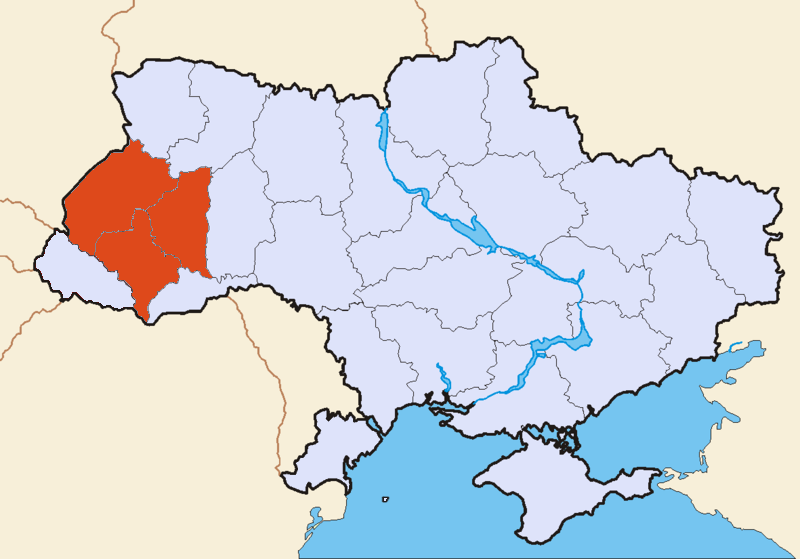Daily Stormer
April 2, 2014
I. Western v. Eastern Ukraine
The Ukrainian language emerged as a means of communication between enslaved Russian peasants and their Polish masters (landlords). Most of the Russian upper classes in Polish occupied territories preferred to convert to Catholicism and speak Polish in order to preserve their privileged status.

Most of the peasantry remained in the Orthodox Church; however, in Galician provinces, they were forcibly converted into a very special branch of Christianity, the so-called “Greco-Uniatic Faith” (invented by the Vatican for that purpose) which stipulated recognition of the Pope as the supreme “leader,” but kept most Orthodox Church rituals intact. That is when the division between “westerners” and “easterners” first appeared, and it grew even deeper after three partitions of Poland, and Galicia became a part of the Austrian Empire.
[Note — Uniats: Union of Brest]Some Uniats found themselves in the Russian Empire, where they were returned to their “mother faith” by czarist authorities. Those in the West fell victim to fierce Austrian anti-Russian propaganda. When Western Ukrainians tried to get land and other rights, and even occasionally revolted against their landlords, they were severely oppressed and encouraged to go East and take Kiev instead. Such was the Austrian version of Drang nach Osten.
To us Russians, the Ukrainian language sounds kind of funny, something like child’s talk — quite primitive in its essence. Since 1991, infiltrating ‘experts’ have worked hard to “enrich” it with various foreign borrowings. Western Ukrainian has many German, Hungarian and Latin words and is more difficult to understand. Some of the Canadian descendants of Austrian Ukrainians are involved in doing this.
In the late 19th and early 20th centuries, Russian authorities did their best to encourage colonization of the Empire’s Eastern territories, providing settlers there with large land plots, interest free loans, tax exemptions and such; however, the Austrians just tried to force out their ‘undesirable’ Ukrainian, Slovak, Croat, Czech, and other Slav populations to North America!
II. Galicia
It must be said that most Galician Ukrainians, (who for centuries lived under heavy foreign rule, first within the Polish Kingdom and then in the Austrian and later the Austro-Hungarian Empire), became the most unfortunate ethnic group there. The most common word used by their Polish masters for them was the deprecating “bydlo” (draft-cattle). I am sure that this is one of the main reasons they’re so aggressive and sensitive to everything connected with money.
Because of this, they are often bribed easily. During WWII the German occupation authorities were surprised to find out how cheaply their Galician collaborators sold their services — actually for nothing at all in many cases where they merely got the clothes of the numerous Poles and Jews whom they killed in the territories of both the newly created Distrikt Galizien and Reichskommissariat Ukraine.
They have always been more “Ukrainian” and “Nationalist” than those traditionally under Russian rule; even so, many of them made it to the very top, becoming senators, army generals, high government officials and the like.

III. The Sugar King
Some Ukrainians were very successful in business. One of them, the Empire’s “sugar king,” was named Mikhail Tereshchenko; his beautiful palace stood right in front of the Kremlin in Moscow. This tycoon had a decent collection of old Western paintings and was a car buff, having quite a number of various vehicles, such as Rolls Royce and Mercedes. He did not need a chauffeur, but preferred to drive himself instead.

After 1917 he was robbed by the Jews and fled abroad. His palace was then given to London Jews for their use as the British Embassy. When I happen to be near it, and see the Union Jack on the top of his house, I always think of those things which went on before.
 Daily Stormer The Most Censored Publication in History
Daily Stormer The Most Censored Publication in History


